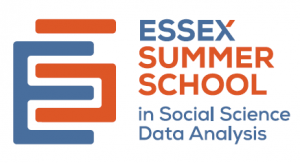

***NEW THIS YEAR***
Take Essex Summer School courses held in Vancouver, British Columbia, Canada! We are offering 5 new courses both on the Simon Fraser University campus and online.
Courses run 23 – 27 June 2025, 9:00am to 5:00pm. Accommodations are available on campus at a discount rate.
This year’s keynote speaker is Prof. Kosuke Imai (Department of Government and Department of Statistics, Harvard University)
The courses available are:
- Improve Your Ordinary Least Squares Regression: How to Test Assumptions and Strategies for Violations
- How to Interpret Regression Models: Causality, heterogeneity, and non-linearity
- Longitudinal Data Analysis
- Experimental Social Sciences
- A Hands-on Introduction to Qualitative Research Methods
Courses are $1,800 CDN
Closing date is 23 May 2025
All enquiries and for further details please contact Mark Pickup at Simon Fraser University >> mark.pickup@sfu.ca
***
Course Information
Course 1: Improve Your Ordinary Least Squares Regression: How to Test Assumptions and Strategies for Violations
Instructor: Rachel T. Fouladi
Biography:
Rachel T. Fouladi is an Associate Professor in the Department of Psychology of Simon Fraser University, where she has been a faculty member since 2003, teaching courses in statistical methodology and questionnaire critique/design. Prior to joining Simon Fraser University, she was faculty at University of Texas M.D. Anderson Cancer Center in the Department of Behavioral Sciences and University of Texas-Austin in the Department of Educational Psychology. She currently is the President for American Psychological Association Division 5 (Quantitative and Qualitative Methods). She is an elected member of the Society for Multivariate Experimental Psychology. Trained at the University of British Columbia as a quantitative psychologist, she is recognized for her scholarship in multivariate statistics, analysis of correlation and covariance structures, robustness, small sample characteristics, simulation; modelling phenomena in the behavioral, social, and health sciences, especially the modelling of emotional and physical function. Her varied work and interests have expanded over the years to include a variety of methodologies including mixed and qualitative methods. Although using different methodologies, consistent is her interests in trying to improve research practice, from advancing techniques which address neglected topics, techniques which can be used in small samples, used with data which depart from assumed distributional forms, and which are logically sound.
Course description:
Ordinary Least Squares (OLS) regression analysis is one of the most commonly used approaches for the analysis of multivariate data. Because OLS regression analysis is very common, unless there is further clarification, it can be presumed to be the approach used if anyone ever reports intending to or having conducted a regression analysis. Unfortunately, because of how common it is, OLS regression analysis is often conducted without full use or communication of diagnostic strategies to check underlying assumptions and consideration of alternate strategies to address the assumption violations.
The course will provide a comprehensive discussion of the fundamental assumptions of OLS regression models, review different diagnostic strategies to assess or test each of the assumptions as appropriate (e.g., testing normality of errors, identification of heteroscedasticity), and review different strategies to address assumption violations (e.g., inclusion of additional variables, use of transformations, use of robust standard errors). Data scenarios which are often considered problematic, but which are not tied to assumptions, will also be considered (e.g., multicollinearity). This course will combine theory and practice through multiple examples. Strategies for clear communication of diagnostic approaches, conceptualizing and reporting of findings will be provided.
An introductory background in ordinary least squares linear regression analysis is assumed but not required. The course will make use of basic algebra. The lab component of this course will employ SPSS and R. Some basic familiarity with SPSS and R would be helpful but for those without familiarity, lab demonstration/notes will provide a brief introduction.
__________________________________________________________________________________________________________________
Course 2: How to interpret regression models: Causality, heterogeneity, and non-linearity
Instructor: Vincent Arel-Bundock
Biography:
Vincent Arel-Bundock is an Associate Professor of Political Science at the Université de Montréal, where teaches quantitative research methods. His research focuses on comparative and international political economy, with particular interest in the politics of international taxation and foreign direct investment. An advocate for open science, Vincent actively contributes to the development of free R and Python software packages, like `marginaleffects` and `modelsummary`.
Course Description:
Our world is complex. To make sense of it, data analysts routinely fit sophisticated statistical or machine learning models. When these models include non-linear components, interactions, or transformations, the results they produce can be difficult to interpret. As a result, researchers often struggle to communicate their findings to colleagues and stakeholders. This class is designed to bridge that gap. It offers a practical guide for students and researchers who need to translate model outputs into accurate insights that are accessible to a wide audience.
The first part of the course introduces directed acyclic graphs and structural causal models. These tools will help us determine when the estimates produced by a regression model can be given a causal or a descriptive interpretation. Then, the course introduces a powerful conceptual framework that empowers researchers to clearly—and rigorously—define the statistical quantities that can shed light on a theory, hypothesis, or phenomenon. Finally, we will apply this framework to real-world data, paying particular attention to cases with heterogeneity (i.e., interactions) and non-linearities.
Participants should have a sound background in linear regression models before starting the class. A passing familiarity with generalized linear models (GLM), such as logistic regression, is desirable but not mandatory. Although the class will focus primarily on the interpretation of linear and generalized linear models, the tools and concepts presented are model-agnostic. Indeed, the workflow you will learn can be applied to interpret the estimates obtained when fitting a much broader range of models, including LM, GLM, GAM, categorical outcome, multi-level, bayesian, or machine learning.
A substantial portion of class time will be devoted to guided hands-on exercises, and a lot of emphasis will be placed on learning how to use software tools that facilitate the interpretation and communication of statistical results. The lab components of this course will use `R`, and participants should have a working knowledge of this programming language before joining class.
__________________________________________________________________________________________________________________
Course 3: Longitudinal Data Analysis
Instructor: Andrew Q. Philips
Biography:
Andrew Q. Philips is an Associate Professor and the Henry W. Ehrmann Professor in Law and Jurisprudence in the Department of Political Science at the University of Colorado Boulder, USA, as well as a fellow at the University of Colorado’s Institute for Behavioral Science. He specializes in political economy and methodology, and is the coauthor of a 2023 Cambridge University Press book on political budgeting. Andy frequently teaches methodology and research design courses to interdisciplinary audiences. He received a PhD in political science from Texas A&M University in 2017.
Course description:
Data collected over both spatial units (e.g., survey respondents, states/provinces, countries) and time (e.g., days, months, years)—variants of which are known as time series cross-sectional, panel, or longitudinal data—are common in the social sciences. By gaining leverage across units and over time, these data help us answer important questions that would be difficult if we only looked at a single point in time (e.g., cross section) or a single unit (e.g., time series): for instance, the relationship between growth and democracy, whether or not the resource curse exists, or how economic perceptions shape support for the government. Despite these advantages, longitudinal data often show forms of heterogeneity as well as dependence that make standard regression approaches inappropriate.
This course is designed to provide you with a broad understanding of longitudinal data analysis. Anyone working with multiple spatial units measured over time will benefit from this course; examples of these types of data abound in the social sciences. After some regression review, we will familiarize ourselves with the structure and properties of longitudinal data, how to visualize these data, and how to test for characteristics such as heterogeneity and spatio-temporal dependence. Then, we will move into modeling strategies, most of which revolve around two considerations: whether units or time dominate (e.g., small-T large-N longitudinal surveys versus large-T medium-N country level datasets) and whether temporal and/or spatial dependence exists (and whether we want to address it). Throughout, we will also discuss several smaller topics in longitudinal data. Heavy emphasis will be placed on using real-world examples as well as discussing how to implement and interpret these models in both Stata and R.
While there are no required prerequisites for this course, a solid background in linear regression/OLS would be useful. We will briefly review OLS and regression assumptions as it pertains to this course. We will also use some matrix algebra and discuss maximum likelihood and other estimators, although previous experience with these is not necessary. Prior experience with either R or Stata would be helpful, although some of the early readings will be very useful for those needing some review.
__________________________________________________________________________________________________________________
Course 4: Experimental Social Sciences
Instructor: David Freeman
Biography:
David Freeman is an Associate Professor of Economics at Simon Fraser University. He holds a PhD in Economics from UBC. Since starting at SFU in 2013, he has taught courses in mathematical economics, behavioural economics, and experimental economics at the undergraduate and graduate levels. His research spans behavioural economics, experimental economics, and microeconomic theory, and has been published in leading academic journals in economics.
Course description:
Social sciences study the complex world of human behaviour, where many forces are simultaneously at play and interact. In such settings, we sometimes lack measures of variables of interest, struggle to disentangle correlations from causal relationships, and have many competing explanations for what we observe.
Experimental approaches provide the social scientist a set of tools for overcoming these limitations. This course will introduce how experiments are used in the social sciences with an emphasis on lab and online experiments. The course will cover some of the major lines of inquiry in experimental social sciences including rationality of individual decision-making, behaviour in group interactions, cooperation, institutions, and measuring discrimination. Methodological topics will include between and within subject designs, the role of theory, statistical analysis of experimental data, how to build software for your experiment, and the pros and cons of different experimental design choices.
By the end of this course, students will be able to develop their own experiments to test hypotheses from the social sciences. Student are expected to have a knowledge of basic statistics.
Background reading: oTree documentation is available at https://www.otreehub.com.
__________________________________________________________________________________________________________________
Course 5: A Hands-on Introduction to Qualitative Research Methods
Instructor: Sheri Fabian
Biography:
Dr. Sheri Fabian is a university lecturer in SFU’s School of Criminology and director of Transforming Inquiry into Learning and Teaching (TILT). Her teaching and research focus on qualitative research methods, minorities and justice, decolonizing curricula, and the scholarship of teaching and learning. Sheri’s work at TILT supports evidence-based teaching and learning research scholarship, partnering with instructors to help them understand the effects of their teaching, and encourages them to reflect upon their students’ growth as academics, future leaders, and global citizens. She has co-facilitated several intensive faculty seminar series including Decolonial Teaching and Learning, Well-Being in Learning Environments, and Disrupting Colonialism through Teaching. Fabian’s teaching practice is informed by 15 years of experience validating residential school survivors’ claims. She accepts her settler responsibilities to decolonize education, engage in anti-racist pedagogical practices, and incorporate Indigenous ways of knowing into classrooms and institutions. Fabian received Canada’s highest teaching honour for post-secondary instructors in 2019 when she was named a 3M National Teaching Fellow.
Course Description:
Qualitative research involves a naturalistic, interpretative approach that typically seeks a deep understanding and detailed insights into human experiences, behaviours, perceptions, and social processes. Its diverse and interdisciplinary nature necessitates a theoretical understanding of the methodological roots and the development of applied skills that ensure rigorous and ethical research practices.
This graduate-level course will combine foundational theory with practical exercises and activities and guide students through the essential components of designing and conducting qualitative studies. The course fosters an iterative, reflective approach to research design and encourages students to engage with the complexities inherent in qualitative inquiry. Students will gain a theoretical understanding of qualitative research while exploring a variety of techniques, including interviews, ethnography, content analysis, and community-based participatory research, among others. We will examine key methodological considerations, such as bureaucratic and philosophical ethics expectations, tool development for data collection, thematic coding, the use of qualitative data analysis software, and writing and reporting qualitative research. Ethical considerations and reflexivity will be woven throughout the course, prompting students to critically examine their roles and positionalities as researchers and to enhance their abilities to produce credible, authentic, and trustworthy research, and evaluate qualitative studies.
Some understanding of qualitative research methods is preferred, but prior experience conducting a qualitative study is not required. Experience with NVivo qualitative analysis software will be helpful. An introductory tutorial is available for students who have not used NVivo. Designed for all levels, this course will be particularly beneficial for students embarking on or refining their thesis or dissertation projects.



